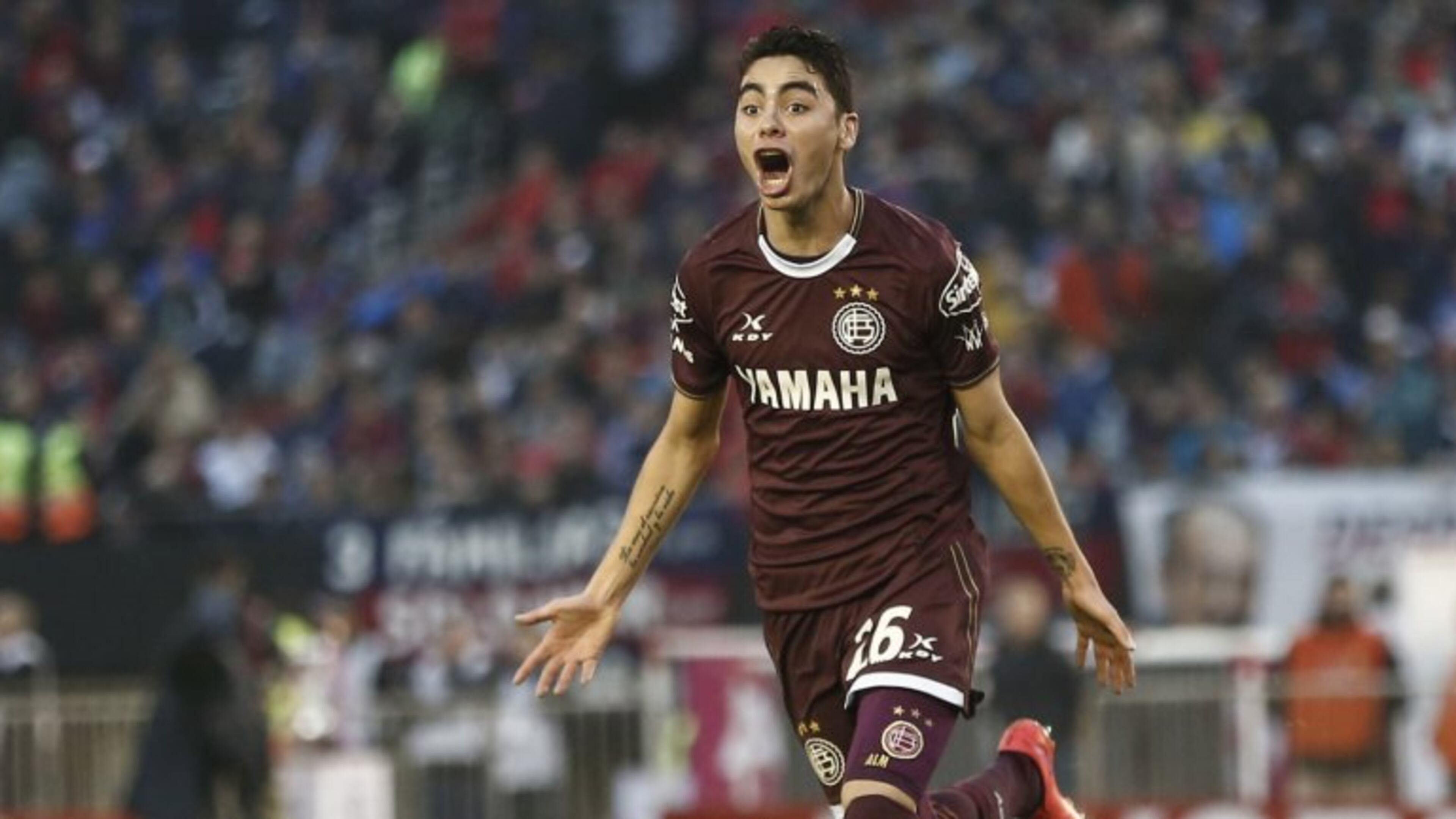Atlanta United signs second Designated Player

Atlanta United confirmed on Monday the signing of Paraguayian attacking midfielder Miguel Almiron as the MLS expansion club's second Designated Player.
Almiron, 22, will join Atlanta United from Lanus in Argentina. Atlanta United sent the MLS mandated amount of $50,000 in General Allocation Money to Seattle in exchange for its Right of First Fefusal on Almiron.
Almiron has made seven appearances with Paraguay’s national team, and has shown enough talent and potential to be recently courted by English Premier League clubs Arsenal and Chelsea, two of the biggest teams in the world. He made his professional debut in 2013 with Cerro Porteno in his native country. He made 39 appearances games before signing with Lanus in 2015, which he helped to win two trophies this season.
“Our club’s ambition is to acquire quality players heading into their peak playing years and Miguel’s youth and ability absolutely speak to that,” Atlanta United President Darren Eales said in statement sent by the team. “He’s highly regarded as one of the top young players in South America and we couldn’t be happier that he has chosen to continue his already impressive career here in Atlanta.”
Atlanta United declined to release the contract terms. However, the transfer fee paid for Almiron reportedly ranges from $8 million to $13 million. The latter would be the highest transfer fee paid by an MLS club for a player, surpassing the $10 million Toronto FC paid Roma for Michael Bradley.
Almiron would figure to thrive in coach Gerardo Martino’s pressing system alongside the team’s other Designated Player, Hector Villalba, a winger and native of Argentina who played against Almiron in the first division.
“Miguel is a player I’ve long admired,” Martino said in a statement sent by the team. “He is a very skillful player with excellent technique and great vision. He is currently one of the best players in Argentina’s top league and we’re really excited that he’s joining Atlanta United.”
With the signing of Almiron, Atlanta United has under contract goalkeeper Alex Tambakis, midfielders Junior Burgos, Andrew Carleton, Chris Goslin and Chris McCann, and forwards Kenwyne Jones, Jeffrey Otoo and Brandon Vazquez.
The club is expected to complete trades with Philadelphia for midfielder Kevin Kratz and has also reportedly agreed to a trade with Chicago for goalkeeper Sean Johnson when the window opens on Dec. 11. Atlanta United has confirmed the Kratz trade, but not the Johnson trade.
The club will soon begin building the remainder of its roster. After the trade window opens and closes on Dec. 11, Atlanta United will have five selections in the league’s expansion draft followed by the opening of free-agency on Dec. 12. The waiver draft will be held Dec. 15 and the re-entry draft (for players whose options weren’t picked up or whose contracts naturally ended) on Dec. 16. The draft for college players will take place Jan. 13 in Los Angeles.
MLS Education
Atlanta sent General Allocation Money to Seattle in exchange for the Right of First Refusal on Miguel Almiron.
What is General Allocation Money? From the league:
General Allocation Money is money that is available to a club in addition to its salary budget. Each MLS club receives an annual allotment of General Allocation Money. In 2016, that allotment is $150,000 per club.
General Allocation Money can be traded by clubs. Allocation Money can be used to “buy-down” a player’s salary budget charge as part of managing a team’s roster, including buying a salary budget charge below the League maximum of $457,500. For example, a team may “buy down” a player earning $475,000 to a budget charge of $275,000 by using $200,000 of General Allocation Money.
General Allocation Money can also be applied in the following circumstances:
- To sign players new to MLS (that is, a player who did not play in MLS during the previous season).
- To re-sign an existing MLS player.
- To off-set acquisition costs (loan and transfer fees)
- In connection with the extension of a player's contract for the second year provided the player was new to MLS in the immediately prior year.
- To reduce the Salary Budget Charge of a Designated Player to a limit of $150,000.
- Use against a Salary Budget Charge: A club cannot use General Allocation Money to reduce more than fifty percent (50%) of a player's Salary Budget Charge. This restriction does not apply where General Allocation Money is being used on a loan or transfer fee. A club may reduce one hundred percent (100%) of a loan or transfer fee.


